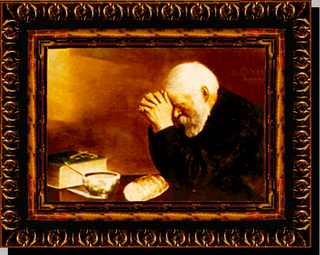THE EARLIEST CHURCH
I do not believe that God intended for us to use Acts 2:42-47 as a guide for our churches. In fact, it would be all but impossible for us to try to copy what those Christians did. Our cultures are dramatically different and our lives simply would not allow us to live like they did. However, there are some important things for us to notice before we go farther into the passage. None of these Christian people had grown up in the church. None of them could say, “We never did it this way before.” None of them had any preference for any particular style of worship. None of them had any denominational attachments or prejudices. There were no denominational leaders to tell people what they were supposed to be doing. These people seem to have been led by the direction of the Holy Spirit. They seem to have done the things that their hearts told them to do. They seem to have been very responsive to the direction of the Holy Spirit in their individual lives and in their corporate life as a church. These people were thrust together on the day of Pentecost. They came from many different countries, spoke many different languages, had many different cultures, and lived very different lifestyles. Suddenly they were brought together by one common thing; they had all just come to faith in Jesus Christ. The Holy Spirit brought them all together and they were launching out on a new life, a life of faith in Jesus.
It was only natural that these people would decide to stay together. Their lives had been fundamentally changed and they had all gone through an experience of new birth that would tie them together throughout eternity. So they committed to be together. That is what verse 44 means when it says, “All the believers were together.” They made a conscious decision to be together on purpose.
What did this church look like? There were over three thousand of them! There was no place where they could all gather together at one time and have a big worship service. Luke tells us they met every day in the temple courts. It does not say every one of them met every day at the temple. These people had responsibilities. They had families and jobs just like we do. What Luke is saying is that the believers made a commitment to meet together every day at the temple. The apostles would meet with those who had come and would teach them. Some of the believers would come in the morning and maybe Peter would teach them. Others would come in the afternoon and James would teach them. Still others would come after the work day ended and maybe John would teach. This is what the church looked like!
Another thing catches our attention; Luke says “they broke bread in their homes and ate together with glad and sincere hearts…” For these people church was not just going to the temple to hear teaching. The church met in homes in the evenings. Of course these groups would have to be much smaller and they would have to meet in many different homes, but it looks like they were all doing pretty much the same thing in all the home groups. They “were together” and were committed to meeting together and living out their lives together. Their activities demonstrated their commitment to life together.



